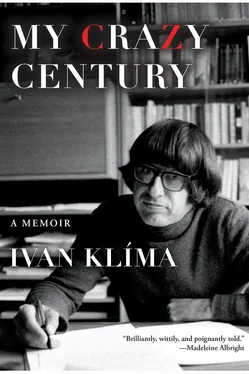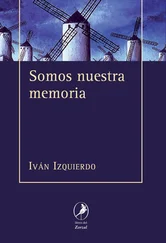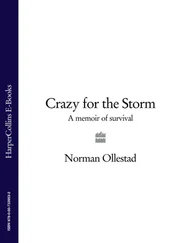At the end of the fourteenth century, the Roman Catholic church organized the Inquisition, whose mission was to make sure that Christians did not deviate from the truths or the practices the church had pronounced as immutable and infallible. Punishment for skeptics was sometimes exile, sometimes imprisonment, sometimes immolation at the stake. Tens of thousands of men and women were murdered for heresy, which sometimes consisted of casting into doubt the actions of the ruling church but often consisted of no offense related to the immutable truths. It was based only on confessions compelled by torture. Every institution, even the Inquisition, needs to prove the legitimacy and necessity of its existence. The inquisitor needed to fight heresy, and if he did not find it, it had to be invented.
At the same time, each person accused of heresy was offered the opportunity to recant what was called his error, to do penance, to loudly espouse the canonized truths. In a lengthy trial in which Jan Hus defended his teachings, even after he was condemned, he was offered the chance to recant. The proposed recantation read: I have never held nor preached these articles of faith, and if I had, I would have been acting against the truth for I pronounce them as erroneous and swear that I would neither hold nor preach them .
For the authorities, a heretic who recants is always more valuable than one who perishes in protest. The subjugated heretic is living proof of the invincibility of the one and only truth.
Two centuries later, Galileo Galilei recanted his teaching concerning the movement of the heavens and thereby saved his life. The Catholic church, despite wide acceptance of the fact that the earth rotates on its axis and orbits around the sun, rehabilitated Galileo only in 1992.
Totalitarian states, which derive their legitimacy from some modern ideology, likewise require faith in the immutability of proclaimed truths. Perhaps it was precisely this that increased their attractiveness; in the complicated modern world, with its crumbling traditional values, many people were enticed by a world in which values were once again established.
The sole truth became whatever the dictator proclaimed, whether it was Hitler, Stalin, or Mao. Furthermore, Communist ideology offered its holy writ in the classic works of Marx, Engels, and Lenin. (The collected works of these holy books stood in the libraries of all secretariats as well as the offices of university professors; no one read them, just as few Nazis read the entirety of Adolf Hitler’s tome.) It was not necessary to read the books (those interested could get their hands on the most important extracts, so-called Red Books, and selected quotes). The dictator was also the highest priest who interpreted the word; he alone could give the eternal truths their obligatory form according to the demands of the moment. Because these truths mostly concerned everyday reality, which they unilaterally described or distorted, in addition to enthusiastic and infatuated followers of this new faith, skeptics could be found. It was necessary to uncover these modern heretics, incriminate them, and condemn them, sometimes to exile, at other times to prison or to death. (Over the course of the several decades of totalitarian rule, their number exceeded many times over the number of heretics condemned throughout the centuries of the Inquisition.)
Just like heretics, the contemporary skeptics were afforded the opportunity to repent, to recognize and recant their errors. Such repentance was called self-criticism.
In 1928, the Soviet dictator Stalin published a long article on self-criticism.
The slogan of self-criticism must not be regarded as something temporary and transient. Self-criticism is a specific method, a Bolshevik method, of training the forces of the Party and of the working class generally in the spirit of revolutionary development. Marx himself spoke of self-criticism as a method of strengthening the proletarian revolution.
In a society where freedom of expression did not exist, where any attempt to place into doubt the canonized truths — or even the ruling party and its leadership — was considered a crime, self-criticism was accepted as an intellectual or even societal exercise. The action of self-criticism was supported in every permitted organization. Upon the orders of their superiors, it was undergone by functionaries even at the lowest levels, factory foremen, and members of individual organizations or trade unions.
Artists (always suspected of kowtowing to some decadent trend) were also prompted to perform this ritual act, as were scientists, who were predisposed to being misled by the decadent science of the West. Even the leading party functionaries subjected themselves to self-criticism, usually when the dictator considered it necessary to strengthen his power. Even Stalin himself saved his career at its beginnings through self-criticism.
Self-criticism became a ritual that had nothing in common with critical self-reflection or even with examining the legitimacy or illegitimacy of the ideas one espoused or actions one performed.
The not-very-long history of the Communist movement abounds with the self-abuse of prominent people. The leaders of the movement recant yesterday’s assertions and repent of their previous deeds; writers apologize for their books; philosophers reject, in the name of the ingenious classics of Marxism, those other philosophers whom they recently praised as giants. Because the dictator sometimes changes his opinions, people often recant words spoken and deeds done when they were following orders. Their repentance is supposed to affirm the dictator’s infallibility, and therefore it is accepted. Whoever submits to it heads off his condemnation, but the suspicion clings to him, nevertheless, that in the depths of his soul he has remained a heretic; at the very least he was at one time susceptible to dangerous opinions or skepticism.
Condemned Communist politicians in the Soviet Union, along with those residing in lands conquered by it, even before they were placed before a court, performed self-criticism in which they recanted and pledged loyalty to the dictator and everything he advocated and carried out. Such self-debasement was merely a desperate attempt to save one’s life.
At the height of Stalin’s terror, the logic of penitence, as it was understood, resulted in the most perverse form of self-criticism. During the political trials in which the accused, subject to long torture, submissively admitted to deeds they had not performed and to crimes they had not committed, they themselves even asked for the harshest punishment. Because they had in the past conducted self-criticism and promised atonement, their new repentance was no longer mitigating, and they were hanged as a warning to all.
Without the ritualized act of self-criticism, however, it is difficult for the dictatorship to resist the onslaught of doubt and distrust until the moment finally arrives when the fallacious principles on which it was built are cast into doubt even by those who are paid to endorse and defend it.
In his History of France , André Maurois writes, Robespierre was all-powerful, and he was undone. For he lost all sense of proportion.
The three great European revolutions were bloody, and their leaders indeed lost all sense of proportion. Each of them captivated at least a part of his citizens with magnificent plans and promises for a new and better arrangement of society. Among them were followers and admirers in the intelligentsia, workers, and people from the countryside, as well as people from the streets, the rabble, informers, and unreserved administrators of the dictator’s will.
The dictators murdered their real and presumed opponents; they sent to death even their closest collaborators — Robespierre sent Danton and Hébert; Hitler sent Röhm; Stalin sent practically everyone who had helped him achieve power and perpetrate crimes. The number of victims during Nazism and the Bolshevik Revolution was much greater and the bloodshed worse than during the French Revolution.
Читать дальше












